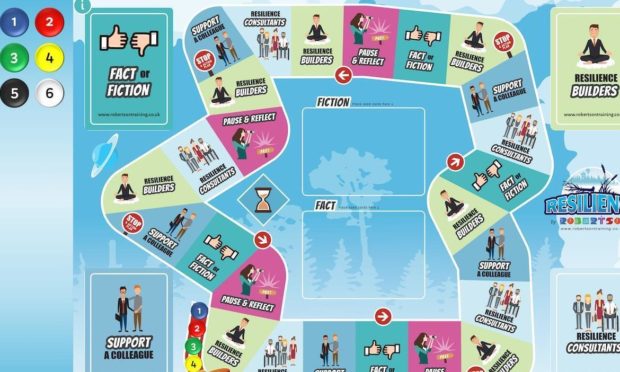A Scottish training company has launched a digital game aimed at improving mental health in the workplace.
Robertson Training has created a digital version of its Resilience Game, which was launched as a traditional board and dice game in 2017.
The Digital Resilience Game guides players through key talking points that encourage reflection and sharing, meaning every game is tailored to suit the players, allowing the different challenges and dilemmas to be explored and discussed.
Derek Robertson, managing director of Robertson Training, said: “Gamification of training is becoming more popular because of how effective it is. We are embracing digital across every area of our lives, so why should training be any different?
“Businesses’ response to stress and burnout is often to tell their people to take some time off work to de-stress. But when they come back, chances are the same stimuli that caused the stress in the first place will still be there and so we start the cycle again. We are stuck in a loop.
“Workforces around the world are ill-equipped to deal with stress, and the Digital Resilience Game helps coach participants on how to manage stress more effectively.
“We are facing yet another period of change as offices begin to fill up again over the next few months. This has the potential to lead to increased anxiety among employees, so now more than ever businesses need to do as much as they can to aid healthy wellbeing for their staff.
“The Digital Resilience Game is a break from the passive click-based learning that so many organisations use to little effect. The digitalisation of Resilience will help businesses make their people just that – resilient, and that can only be a good thing for employees and company owners.”
The firm said the original board game has received “positive feedback” from public and private sector organisations across the UK, including the Department for Work & Pensions who said it was “a very effective and easy to use learning tool” and that the “simplicity of the game was one of the main pluses”.

